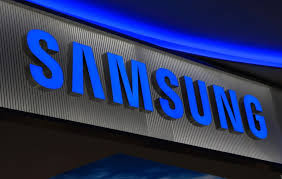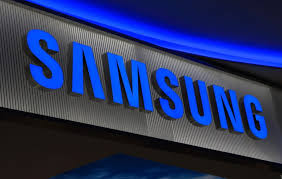
Based on its recent $8 billion acquisition of audio and auto parts supplier Harman and its pole position in mobile communications markets, South Korea’s Samsung Electronics Co Ltd plans to become a major player in autonomous driving.
Together with a $300 million fund to invest in automotive start-ups and technology, it has set up a strategic business unit for autonomous and advanced driver assistance services (ADAS), Samsung announced at the Frankfurt Motor Show recently.
“It’s time to communicate our intent to enter the autonomous driving market,” Young Sohn, the company’s president and chief strategy officer, said. “Samsung has been incubating this business for quite a while.”
Samsung is a consumer electronics giant that leads markets in products as varied as phones and TVs, displays and memory chips and is the world’s biggest maker of semiconductors by revenue. Sohn said that the company gets confidence to enter an increasingly crowded auto market with other top tech names by these assets, and the inside track with car makers provided by its Harman unit.
While Qualcomm Inc is seeking regulatory approval for its $47 billion deal to buy NXP Semiconductors NV, the world’s biggest maker of automotive-grade chips and Intel Corp paid $15.3 billion last month to acquire Mobileye, the current market leader in collision-detection ADAS software, which shows that Samsung’s two biggest rivals have also moved into the connected car market over the past year.
By way of supplying navigation services, on-board entertainment systems and vehicle networks that put it at the intersection of connected cars and mobile networks, 65 percent of sales is derived from its automotive business by Harman which is best known for its consumer audio speakers.
Samsung already has hundreds of engineers who are working on autonomous driving technologies and the Autonomous/ADAS business unit will absorb hundreds them, Sohn said. A company spokesperson said that the connected car business of Harman, an independent subsidiary of Samsung, will house the new unit.
Licenses for autonomous driving pilot projects in South Korea and California have been secured by Samsung in recent months.
While entering the market will take time, Samsung is ideally placed to pull together consumer electronics, mobile devices and auto technology, said Strategy Analytics automotive analyst Roger Lanctot. He said that a 2020 time horizon is reasonable for its strategy to come together, Samsung has indicated.
“In the meantime, though, I’d expect to see a variety of clever implementations and pilots to test the waters.”
He noted that Harman and Samsung must move quickly in a market where vehicle design cycles can take anywhere from three to five years even though there is no coherent industry vision yet for what a connected car exactly means, creating openings for them.
The company said that areas like sensors, machine vision, artificial intelligence, high-performance computing, cloud services, mobile connectivity, automotive-grade safety and security, would be the aspects that the new Samsung Automotive Innovation Fund will invest in over the next two to three years.
Graphcore, a maker of high-performance artificial intelligence computing, Quanergy, for 3D cameras known as LiDAR, and AImotive and Renovo for automated driving, were the three previous Samsung auto-related investments.
(Source:www.reuters.com)
Together with a $300 million fund to invest in automotive start-ups and technology, it has set up a strategic business unit for autonomous and advanced driver assistance services (ADAS), Samsung announced at the Frankfurt Motor Show recently.
“It’s time to communicate our intent to enter the autonomous driving market,” Young Sohn, the company’s president and chief strategy officer, said. “Samsung has been incubating this business for quite a while.”
Samsung is a consumer electronics giant that leads markets in products as varied as phones and TVs, displays and memory chips and is the world’s biggest maker of semiconductors by revenue. Sohn said that the company gets confidence to enter an increasingly crowded auto market with other top tech names by these assets, and the inside track with car makers provided by its Harman unit.
While Qualcomm Inc is seeking regulatory approval for its $47 billion deal to buy NXP Semiconductors NV, the world’s biggest maker of automotive-grade chips and Intel Corp paid $15.3 billion last month to acquire Mobileye, the current market leader in collision-detection ADAS software, which shows that Samsung’s two biggest rivals have also moved into the connected car market over the past year.
By way of supplying navigation services, on-board entertainment systems and vehicle networks that put it at the intersection of connected cars and mobile networks, 65 percent of sales is derived from its automotive business by Harman which is best known for its consumer audio speakers.
Samsung already has hundreds of engineers who are working on autonomous driving technologies and the Autonomous/ADAS business unit will absorb hundreds them, Sohn said. A company spokesperson said that the connected car business of Harman, an independent subsidiary of Samsung, will house the new unit.
Licenses for autonomous driving pilot projects in South Korea and California have been secured by Samsung in recent months.
While entering the market will take time, Samsung is ideally placed to pull together consumer electronics, mobile devices and auto technology, said Strategy Analytics automotive analyst Roger Lanctot. He said that a 2020 time horizon is reasonable for its strategy to come together, Samsung has indicated.
“In the meantime, though, I’d expect to see a variety of clever implementations and pilots to test the waters.”
He noted that Harman and Samsung must move quickly in a market where vehicle design cycles can take anywhere from three to five years even though there is no coherent industry vision yet for what a connected car exactly means, creating openings for them.
The company said that areas like sensors, machine vision, artificial intelligence, high-performance computing, cloud services, mobile connectivity, automotive-grade safety and security, would be the aspects that the new Samsung Automotive Innovation Fund will invest in over the next two to three years.
Graphcore, a maker of high-performance artificial intelligence computing, Quanergy, for 3D cameras known as LiDAR, and AImotive and Renovo for automated driving, were the three previous Samsung auto-related investments.
(Source:www.reuters.com)





